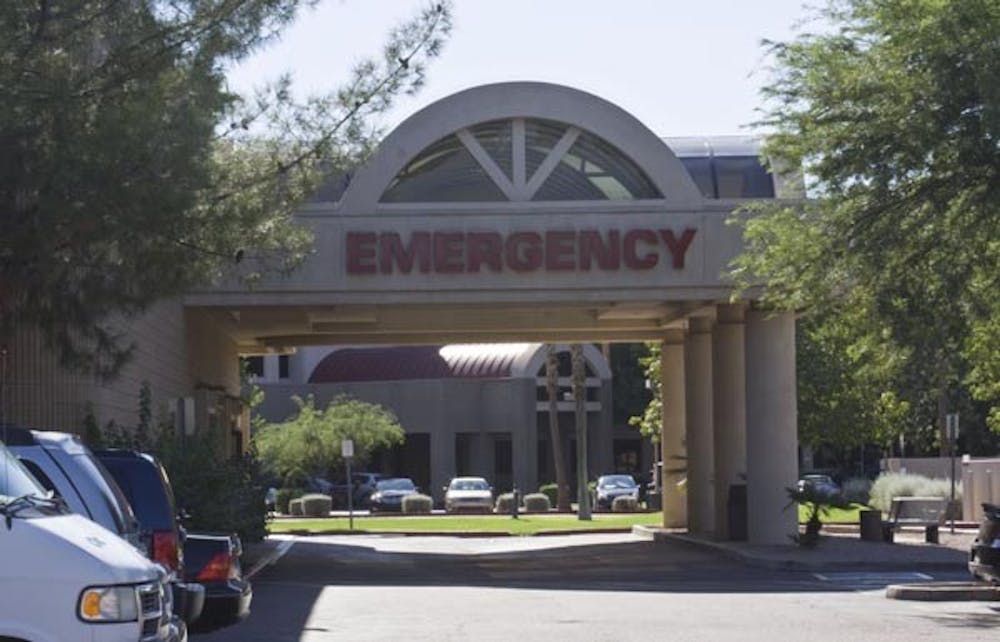An advanced electronic medical records system could decrease emergency wait times by more than 22 percent, according to a study by an ASU professor.
The report, completed by information systems assistant professor Michael Furukawa from the W. P. Carey School of Business, chronicled more than 35,000 patient record forms from 364 hospital emergency departments.
Through the records he found that patients at hospitals that have the best type of electronic medical records spent an average of 22.4 percent less time in the emergency room than those without the advanced electronic medical records, known as EMRs.
But simply having the records at a hospital does not mean wait times will decrease, he found.
“The hospitals with basic EMRs actually had worse efficiency,” Furukawa said. “Wait times to see a doctor were actually higher than hospitals with no EMRs.”
Furukawa made it clear that sophisticated electronic medical record systems are directly related to increased hospital efficiency, and patients and hospitals should try to avoid settling for a hospital with a very basic system.
Though Furukawa said some hospitals have been unwilling to implement advanced EMRs into their emergency room care, he believes incentives and punishments laid out in the American Recovery and Reinvestment Act of 2009 will make them more willing to comply.
The act offers incentives to physicians who upgrade to advanced electronic records, ranging from $44,000 to $64,000 over a five-year period.
The act also includes a penalty for physicians who are not using electronic records.
If physicians are not using qualified records by 2015, they stand to lose 1 percent of their annual Medicare reimbursement for that year. That penalty increases to 2 percent of their yearly reimbursement in 2016, and 3 percent for 2017 and every year after.
Furukawa believes that the penalties will be a much higher motivator for the use of records than the incentives.
“The penalty, I think, is basically going to cause everybody to move to electronic records,” he said.
Though Furukawa indicated that some hospitals are reluctant to upgrade, the staff at the Arizona St. Luke’s hospitals have been utilizing electronic medical records for some time now.
St. Luke’s operates medical centers throughout Arizona, including locations in Tempe and Phoenix.
“We’ve had electronic medical records for years,” said Elizabeth Krecker, marketing director for the St. Luke’s hospitals. “We’re constantly advancing the system.”
Krecker said that they began working on their system in 2004. It was fully operational in 2008.
Their system, which is run by a network of 16 hospitals nationwide called IASIS, was upgraded most recently on Aug. 3.
The upgrade required extensive training for staff members to use.
“Our corporate environment as well as our hospital system provides education as the system upgrades,” said Janet Backers, director of Emergency Services for St. Luke’s and Tempe St. Luke’s. “Education programs are mandated for the nurses.”
Through IASIS, Tempe St. Luke’s and St. Luke’s Hospital have made real-time waiting room updates available over the Internet. In May, they were also vital in bringing this information to a mobile iPhone application called ArizonaER.
According to a 2009 study by Press Ganey, a provider of patient satisfaction data, the three Arizona IASIS hospitals — St. Luke’s, Tempe St. Luke’s and the Mountain Vista Medical Center in Mesa — had average stay times of less than two and a half hours. The national average is over four hours.
Reach the reporter at michael.reppenhagen@asu.edu





